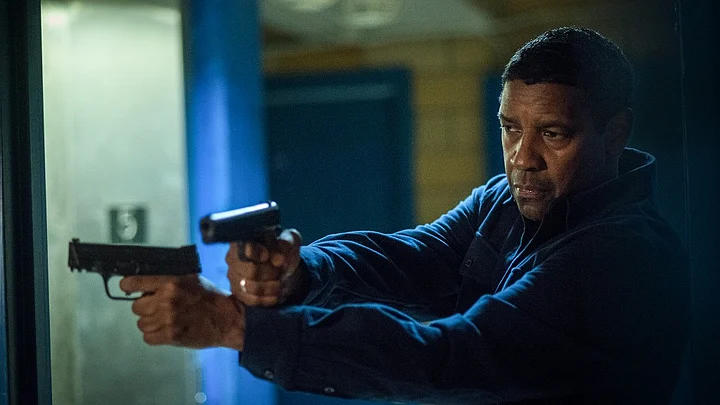In his long innings as an actor, Denzel Washington never participated in a sequel. The Equalizer 2 has just changed that. But it doesn’t necessarily imply that it’s one momentous picture to break Washington’s original resolve. It’s far from that. Perhaps Washington couldn’t forego the idea of hanging out again with Antoine Fuqua, his frequent collaborator. Because that’s the only possible reasoning you can find if you scratch your head hard enough.
The sequel to The Equalizer, the surprise hit of 2014, based on the ‘80s TV show returns with Washington as Robert McCall using his lethal skills to help the less fortunate.
If the last film showed him helping a teen prostitute (Chloë Grace Moretz), this time, he is a surrogate father to a young man who is an aspiring painter but threatening to go the wrong way. This young man, Miles is played by Ashton Sanders, the boy who essayed teen Chiron in Moonlight with undeniable feelings.
Richard Wenk’s screenplay opens on a train traversing through Turkish landscape, where McCall imparts a crash course in pain, citing, "There are two kinds of pain in the world. Pain that hurts and pain that alters." Yes, bone-crunching, blood-spilling action tags along to give heft to the statement.
Post this display of invincibility, we ride with McCall in his car, meandering for a long time as a Lyft driver. He overhears the agonies and ecstasies of his passengers, sometimes delivering swift action by being the judge, jury and executioner. Of course, he remains off the charts since he doesn’t want a thank you note in return.
Since the film is not sure about a proper plot, he mentors Sanders’ Miles, spends time with a holocaust survivor, and chitchats with his Muslim neighbour. Halfway through, a conspiracy unfolds that begins at Brussels with twin murders, and is now about to engulf his friend Susan (Melissa Leo), and his former partner, Dave (Pedro Pascal).
Now that a friend has been targetted, vengeance becomes Washington, and with the visual flair of Fuqua, action is staged as another reminder of the grand American love for violence. Washington moonlighting as an action hero beating nasty folks is electrifying to watch. Even with mediocre material, he balances laughter and mournful silence with such rare expertise that he makes you aware that you’re watching one of America’s great talents. But the delight of his magnetic presence never manages to cover the movie’s simplistic exploitative impulses.
Director Antoine Fuqua sees his leading man as a grown-up superhero figure, a do-gooder who uses ruthless violence to serve justice. In short, another Death Wish redux. But Fuqua with his conscious homage to The Searchers, and planting writers like Ta-Nehisi Coates, Richard Wright, and Marcel Proust in the character’s universe has lofty ambitions.
He doesn’t want to make just a vigilante thriller, he wants a superhero with existential churns. But McCall is so indestructible in combats that he seems out of vulnerability’s reach, which in turn reduces his presence in the realm of melancholy.
The plot is wafer-thin, lacking coherence, and a climax in bellowing storm seems to be there just for the heck of it. The material simply doesn’t rise to the occasion.
Throughout the film, Washington’s McCall keeps offering little doses of teaching on masculinity, and manhood, but his ways of operating simply don’t align with what his mouth imparts. His virtuous words stand in stark contrast to the glee he displays in bloody mayhem. A scene at the end shows Miles imagining McCall as a superhero, laying bare Fuqua’s intentions. The convoluted morality of The Equalizer 2 is the result of grown-up actors struggling to stay relevant in an age of superheroes. Does that sound sad?
(The writer is a journalist, a screenwriter, and a content developer who believes in the insanity of words, in print or otherwise. He tweets @RanjibMazumder)
(At The Quint, we question everything. Play an active role in shaping our journalism by becoming a member today.)
